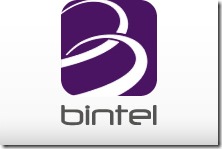Zain Saudi Arabia said it is in discussions with creditors over missing some financial commitments last year, connected with a two-year US$2.5 billion Islamic loan. Zain CEO Saad Al Barrak stated the unmet commitment was not debt repayment, but related to performance ratios the mobile operator was expected to deliver to banks.
The company said its lenders pardoned it under the condition they agree to a financial plan for 2010.
According to a statement on the Saudi bourse website, Zain Saudi Arabia said its capacity "to ensure a timely delivery on commitments and to continue in its business, hinges on the firm’s ability to ensure adequate funds on time and also on its success in discussing and changing some of the commitments for the four quarters to end-December, 2010".
The kingdom’s third mobile operator, which currently holds an 18 per cent market share 15 months on from launching its operations, paid a massive US$6.1 billion for its 25-year licence in 2007.
The operator reduced its net loss by 29.4 per cent in the fourth quarter of 2009 to SAR 657 million (US$175 million). Quarterly revenues more than doubled from the previous quarter to SAR 895 million. Its annual net loss for 2009 came to SAR 3.1 billion, 36 per cent larger than the SAR 2.28 billion loss in 2008.




